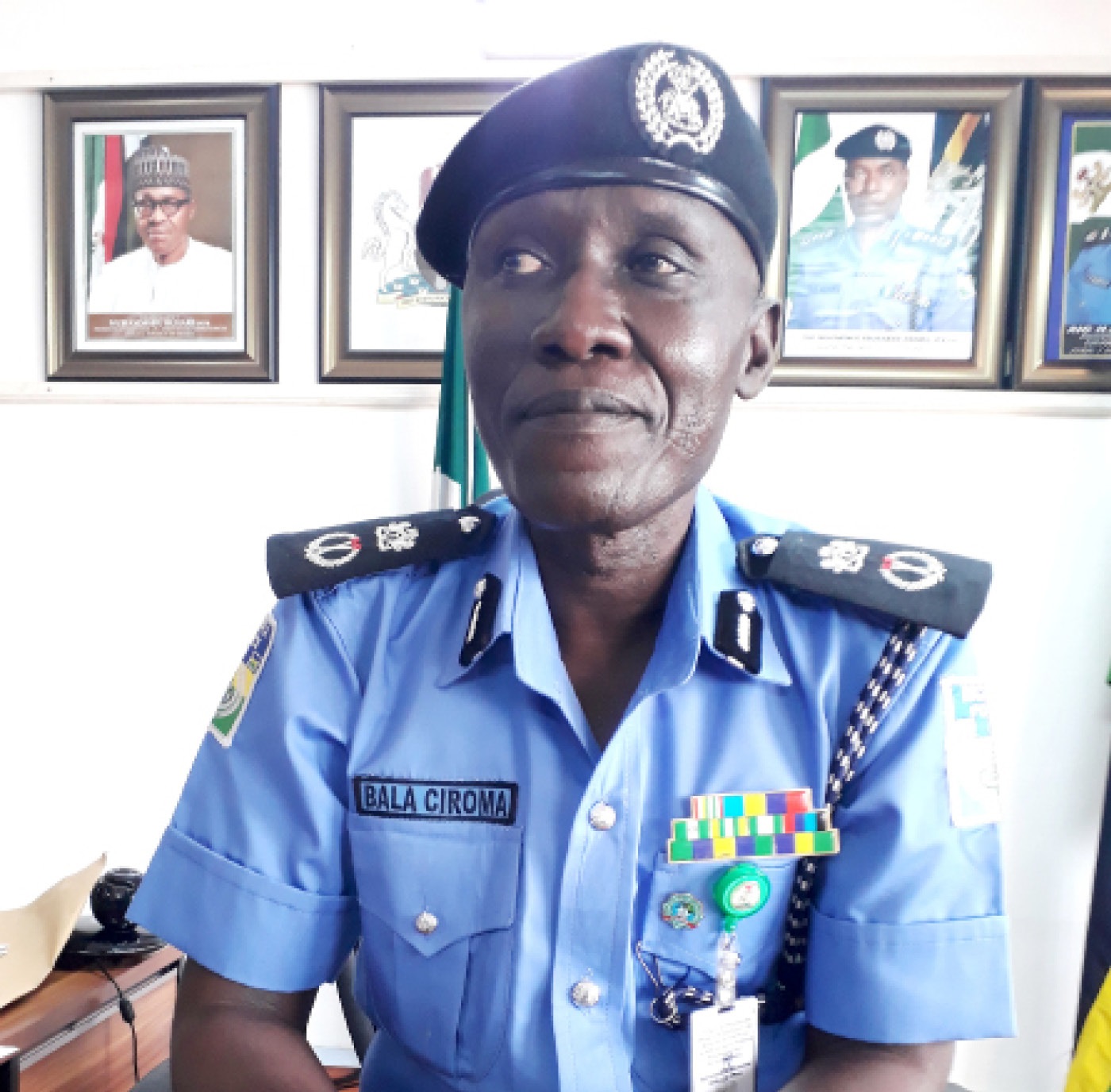Why I introduced FCT policing plan – FCT police commissioner
Bala Ciroma is the commissioner of police in the Federal Capital Territory (FCT). In his interview, he said he introduced the FCT policing plan for 2019 as part of the command’s efforts to improve on its service delivery to residents of the territory. He also spoke on how the command has been able to tackle […]

CP Bala Ciroma
Bala Ciroma is the commissioner of police in the Federal Capital Territory (FCT). In his interview, he said he introduced the FCT policing plan for 2019 as part of the command’s efforts to improve on its service delivery to residents of the territory. He also spoke on how the command has been able to tackle cases of ‘one chance’ robbers, car thefts, among other issues.
How challenging is it policing Abuja which is the seat of power in Nigeria?
Well, it is quite challenging. FCT is very cosmopolitan, so to say, and the melting pot of different tribes and cultures. And in that respect you will find out that the police commissioner in the FCT has to do more to maintain stability crime wise.
What are those strategies that you have employed to make the FCT safe for residents and the VIPs?
The strategies we have adopted in ensuring that we maintain a stable security situation within the FCT have always been that of being proactive. You know, we believe in trying to stop happenings because we consider that to be more cost effective and less capital intensive.
We deploy a lot of patrol teams to many places that we have marked as black spots. These patrol teams are more like mobile stations as they receive complaints there on the ground and they give us preliminary information to effect arrest and thereafter, we take such suspects to police stations. We also ensure coverage of the city centre with foot patrol because we do not have enough vehicles to cover the whole city.
As I told you, we have also raided black spots to ensure that we don’t allow hoodlums to have a field day in the FCT. We identified these black spots and ensure that arrests are made and we charge such suspects to court. Essentially, this is what we have been doing for quite some time to maintain crime stability in the FCT.
What is the major challenge you face in the effort to tackle the issue of ‘one chance’ robbers?
I have always said that ‘one chance’ is an opportunistic crime. They notice that people always get desperate to get to their destinations and they have no alternative transportation. A lot of people are into using their private vehicles for commercial purposes and because of maybe shortage of buses within the city, people are desperate to move from one location to the other and they don’t even take care to screen the vehicles they enter, and that indeed, is a major challenge transport wise.
Secondly, people using unpainted and sometimes unregistered vehicles take advantage of the transportation situation in the city and we have been liaising with the Vehicle Inspection Officers (VIO ) in ensuring that we pick such drivers up who did not register their vehicles for the purpose they are using them. And on a daily basis, about 50 or 60 drivers are arrested and prosecuted by the mobile courts.
Now, to stem the activities of one chance armed robbers, we also liaise with stakeholders such as transport unions, as they know their members and they know those who are likely to be members of this syndicate. And with the cooperation of the transport unions, we have successfully made arrests of ‘one chance’ robbers.
However, we on our part have also created a department in the Criminal Investigation Department (CID) whose sole responsibility is that of tackling one chance robbers and it has been wonderful as a lot of the robbers have been arrested and are being prosecuted.
Why is it that despite all the efforts of the police make to checkmate crime, they don’t have a very positive image in the eyes of the public? At your command here in the FCT what are you doing to ensure that members of the public have confidence in the police and they can run to them when they have problem?
We have a very vibrant police in the FCT and recently we brought various stakeholders together and produced a policing plan for the FCT. All stakeholders and every other persons are being involved in our policing plan and in the process, our challenges are known and there is positive response from members of the public. Once there is the policy of giving out information to the police, it enhances the quality of service delivery. And that indeed has been key to our cordial relationship with members of the public in the FCT.
If you are to leave this command today, what will you say are your achievements as FCT police commissioner?
My achievements are numerous but the most important thing is that I have been able to motivate my men properly and I have been able to bring about synergy between the agencies and I have also been able to bring members of the public on board in the spirit of community policing.
Besides, we have also been able to tackle cases of drug abuse where we conduct raids on identified blackspots and a lot of arrests were made, while we have also been able to sensitize young people on the dangers of drugs in schools and community programmes.
The FCT police command under my leadership has also been able to tackle cases of theft/house breaking as a result of identifying major time of occurrence with a view to deploying proactive measures to nip the in the bud.
